
Masada: The Ancient Fortress of Israel
Masada is more than just a historical site; it is a symbol of resilience and heritage. Perched on a rugged plateau overlooking the vast Judean Desert and the shimmering Dead Sea, this ancient fortress offers visitors a unique blend of natural beauty and profound history. As you ascend the snake path or take the cable car to the top, you are transported back to the first century BCE, when King Herod the Great built this palatial fortress. The ruins of Herod's palaces, the Roman baths, and the storerooms provide a glimpse into the opulence and strategic importance of Masada. The story of the Jewish Zealots' last stand against the Roman legions is both tragic and inspiring. Walking through the ancient synagogue, the remains of the Roman camps, and the breathtaking views from the top, you can almost hear the echoes of the past. The site's museum also offers an immersive experience with its impressive collection of artifacts and detailed exhibits. Masada is not just about history; the natural surroundings are equally captivating. The spectacular sunrise over the Dead Sea is a sight to behold, casting a golden hue over the desert landscape. The flora and fauna of the region, adapted to the harsh desert conditions, add to the uniqueness of this destination.
Local tips in Masada
- Visit early morning or late afternoon to avoid the extreme heat and catch the stunning sunrise or sunset.
- Bring plenty of water, sunscreen, and a hat, as the desert sun can be intense.
- Consider using the cable car for a more comfortable ascent, especially during hot weather.
- Allocate at least half a day to explore the site thoroughly, including the museum and surrounding trails.
- Wear sturdy walking shoes, as the terrain can be uneven and rocky.
- Check the weather forecast before your visit, as strong winds can occasionally affect the cable car operation.
Masada: The Ancient Fortress of Israel
Masada is more than just a historical site; it is a symbol of resilience and heritage. Perched on a rugged plateau overlooking the vast Judean Desert and the shimmering Dead Sea, this ancient fortress offers visitors a unique blend of natural beauty and profound history. As you ascend the snake path or take the cable car to the top, you are transported back to the first century BCE, when King Herod the Great built this palatial fortress. The ruins of Herod's palaces, the Roman baths, and the storerooms provide a glimpse into the opulence and strategic importance of Masada. The story of the Jewish Zealots' last stand against the Roman legions is both tragic and inspiring. Walking through the ancient synagogue, the remains of the Roman camps, and the breathtaking views from the top, you can almost hear the echoes of the past. The site's museum also offers an immersive experience with its impressive collection of artifacts and detailed exhibits. Masada is not just about history; the natural surroundings are equally captivating. The spectacular sunrise over the Dead Sea is a sight to behold, casting a golden hue over the desert landscape. The flora and fauna of the region, adapted to the harsh desert conditions, add to the uniqueness of this destination.
When is the best time to go to Masada?
Iconic landmarks you can’t miss
Masada National Park
Explore the ancient fortress of Masada National Park, where history and stunning landscapes converge in the heart of Israel.
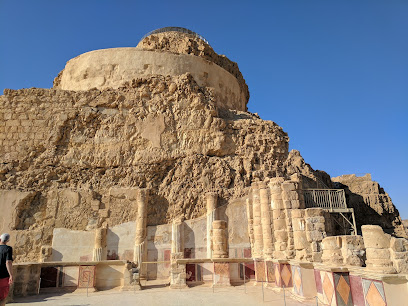
Masada West Campsite
Explore the breathtaking Masada West Campsite, a UNESCO World Heritage site perfect for hiking, history, and stunning desert landscapes.
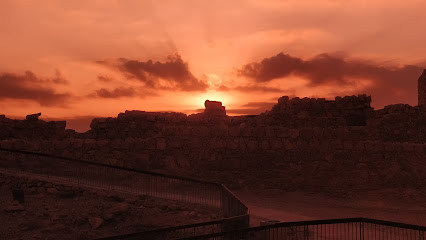
Masada tourist center
Explore Masada, an ancient fortress with breathtaking views and rich history above the Dead Sea, a symbol of resilience and cultural heritage.
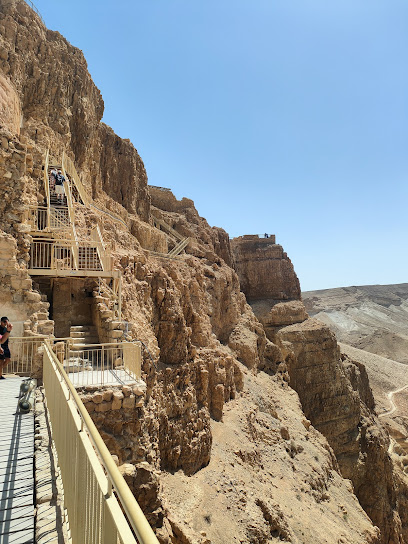
היכל מצדה / Desert Rocks
Discover the Desert Rocks Festival, where music, art, and community come together in the stunning Israeli desert landscape for an unforgettable cultural experience.
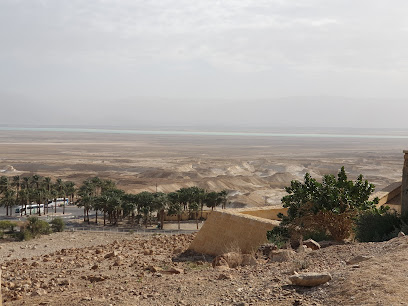
Masada Marl
Explore the breathtaking trails of Masada Marl, where ancient history meets stunning natural landscapes in Israel's iconic hiking destination.
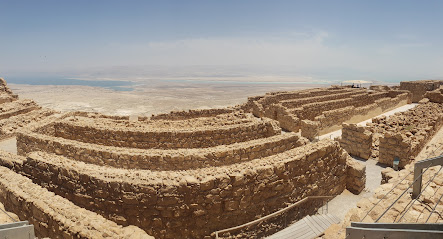
Northern Palace
Discover the Northern Palace, a historical landmark that beautifully reflects the rich cultural heritage of the region, perfect for history enthusiasts and travelers alike.
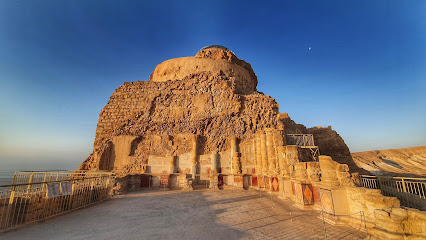
Masada Cablecar
Experience the breathtaking views and rich history of Masada with a ride on the iconic Masada Cablecar, an unforgettable journey in the heart of Israel.
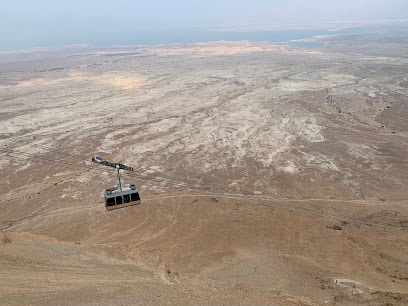
Masada Challange
Experience the breathtaking beauty and historic significance of Masada, an ancient fortress overlooking the Dead Sea, where adventure meets history.
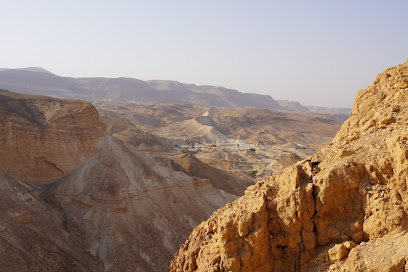
Havarey Masada
Discover the breathtaking landscapes and rich biodiversity at Havarey Masada, a serene nature preserve near the historic Masada in Israel.
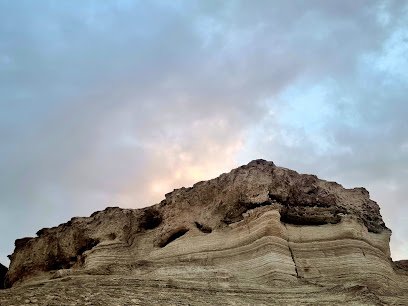
Har Mezada
Explore Har Mezada, a stunning mountain peak in Israel, perfect for hiking and steeped in rich historical significance.
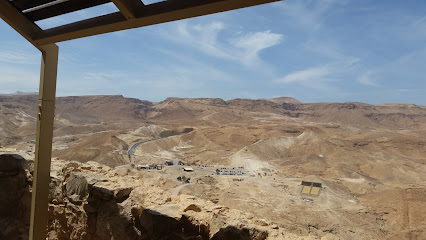
Unmissable attractions to see
Ein Bokek beach
Experience the serene beauty of Ein Bokek Beach, where the healing waters of the Dead Sea meet the stunning desert landscape.
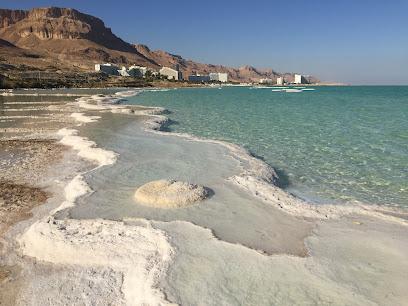
Church of the Nativity
Explore the Church of the Nativity in Bethlehem, a UNESCO World Heritage Site and the birthplace of Jesus, rich in history and architectural beauty.
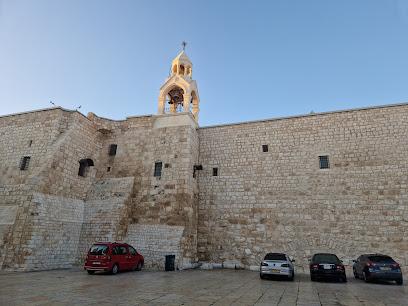
Kerak Castle
Explore the historic Kerak Castle, a majestic fortress in Jordan offering breathtaking views and a rich tapestry of medieval history.
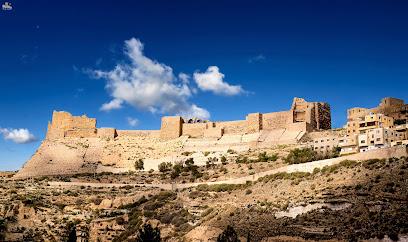
Ma'in Hot Springs
Discover the healing waters and stunning landscapes of Ma'in Hot Springs, a rejuvenating oasis in the heart of Jordan.

Qumran National Park
Explore the ancient ruins and natural beauty of Qumran National Park, a historical landmark where the Dead Sea Scrolls were discovered.
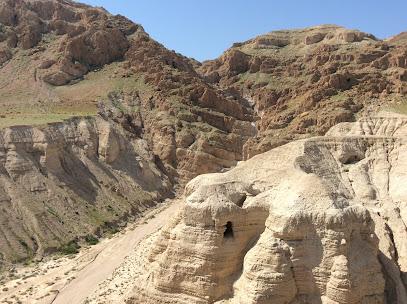
Herodion National Park
Explore Herodion National Park, a UNESCO World Heritage site rich in history and breathtaking views of the Judean Desert.
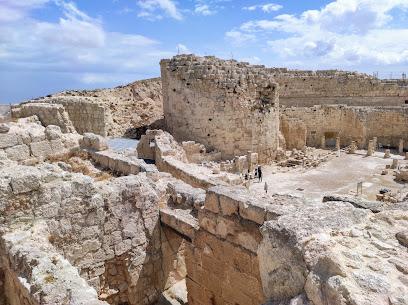
Ibrahimi Mosque
Explore the Ibrahimi Mosque in Hebron - a historical and spiritual landmark that offers a glimpse into the rich cultural heritage of the region.
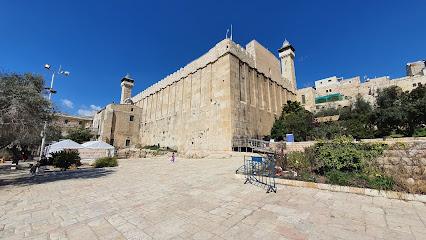
Masada West Campsite
Explore the picturesque Masada West Campsite, where history meets nature in the breathtaking Judean Desert landscape.
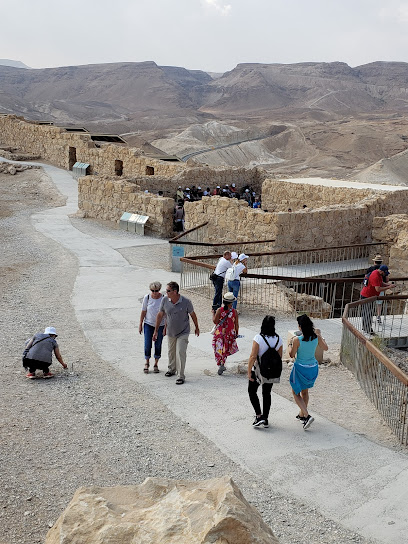
Dead Sea Museum
Explore the unique cultural and natural heritage of the Dead Sea at the Dead Sea Museum, where history and beauty converge in a stunning setting.
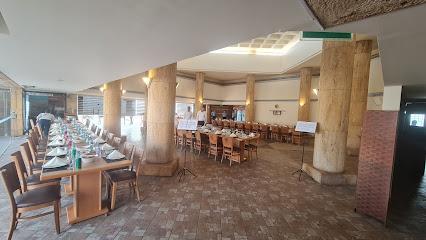
Visitor Center Ahava
Experience the rejuvenating powers of Dead Sea cosmetics at the Ahava Visitor Center in stunning Ein Gedi, Israel.
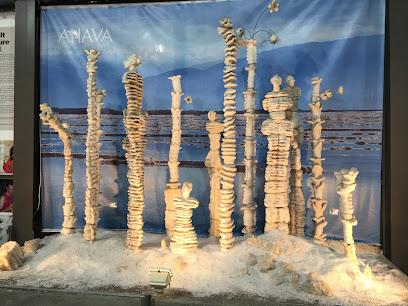
Wadi Mujib
Experience the stunning beauty and adventurous spirit of Wadi Mujib, Jordan's breathtaking national reserve, filled with nature and outdoor thrills.
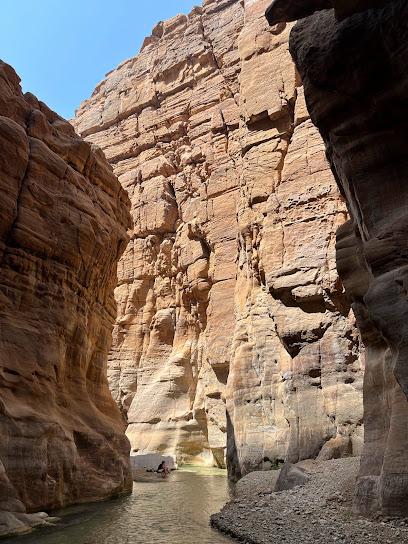
Mar Saba Monastery
Discover the ancient Mar Saba Monastery, a breathtaking site of spirituality and history nestled in the Judean Desert.
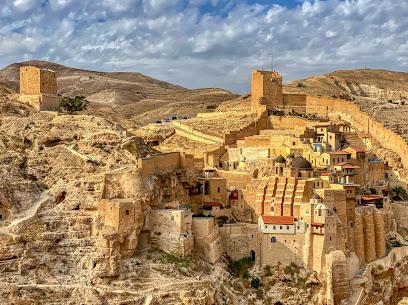
The Walled Off Hotel
Discover the captivating blend of art, history, and culture at The Walled Off Hotel in Bethlehem, a must-visit destination for every traveler.
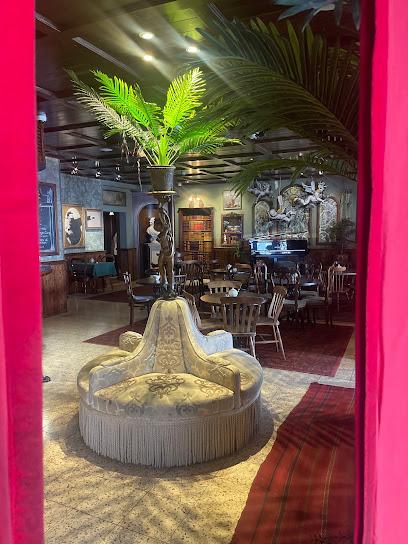
Mar Elias Monastery
Explore the serene Mar Elias Monastery in Jerusalem, a historical site rich in spiritual significance and breathtaking beauty.
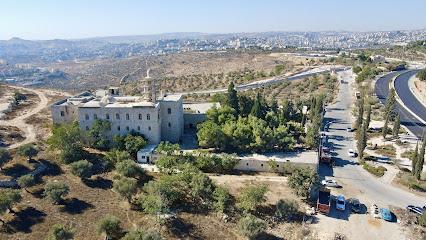
Fortress of Machaerus
Explore the historical Fortress of Machaerus in Madaba, Jordan, where history and breathtaking views come together in a captivating experience.
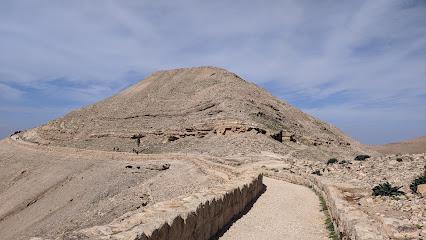
Essential places to dine
Muza
Discover Muza: A vibrant restaurant and pub in Arad offering delicious local cuisine and lively atmosphere for unforgettable dining experiences.
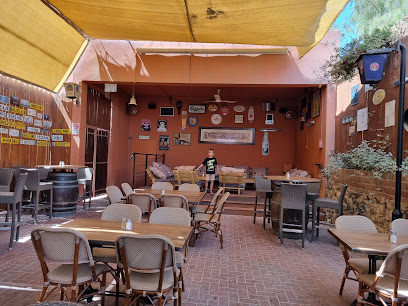
Machneyuda
Experience gourmet Israeli cuisine at Machneyuda in Jerusalem – where tradition meets innovation in every delicious bite.
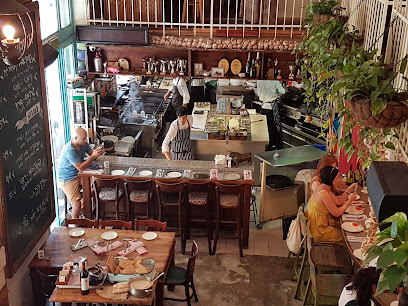
Magdalena restaurant
Experience exquisite flavors and stunning views at Magdalena Restaurant in Migdal - a culinary journey awaits you!
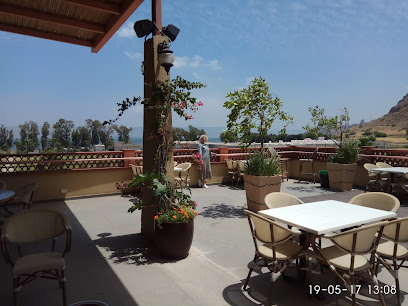
Taj Mahal
Experience authentic Middle Eastern flavors at Taj Mahal near the Dead Sea - a must-visit destination for food lovers.
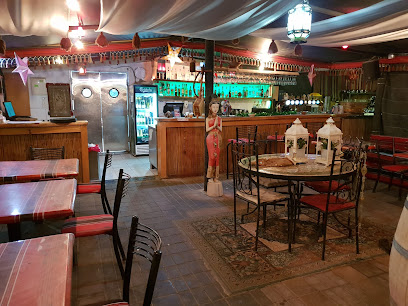
Kornmehl Farm
Experience authentic farm-to-table dining at Kornmehl Farm in Ramat Negev – where quality meets nature's bounty.
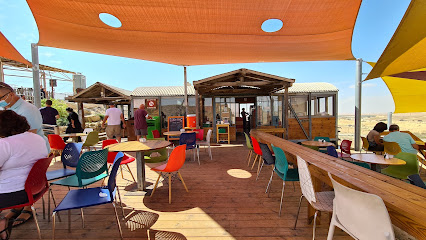
Deja Bu - דז'ה בו
Experience the vibrant flavors and warm hospitality at Deja Bu - your culinary haven in Jerusalem.
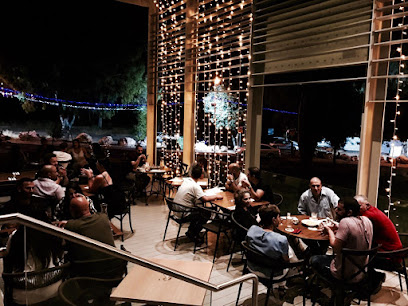
Mul Hayam
Experience exquisite dining at Mul Hayam, where delicious cuisine meets breathtaking views of the Dead Sea.
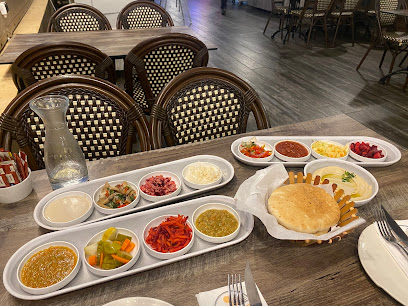
Pizza Kaparuchka
Experience authentic pizza delights at Pizza Kaparuchka in Arad - where fresh ingredients meet vibrant atmosphere.
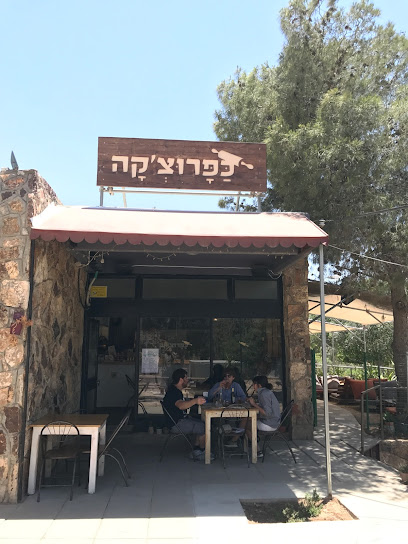
The Eucalyptus
Discover The Eucalyptus: An exquisite dining experience in Jerusalem featuring authentic Israeli and Mediterranean flavors.
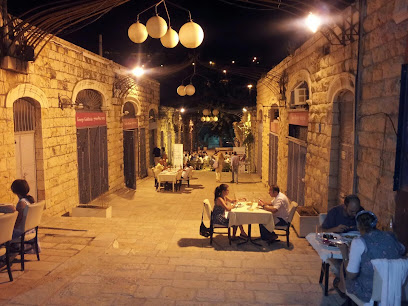
Greg cafe
Discover delicious breakfasts and stunning views at Greg Cafe in Ein Bokek, where culinary delights meet serene landscapes.
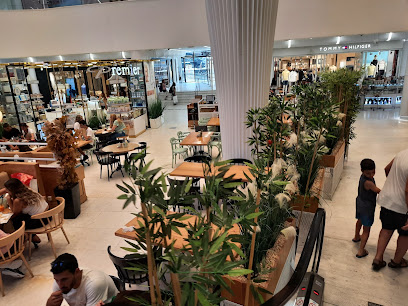
Agadir Burger
Discover Agadir Burger: A must-visit restaurant by Ein Bokek beach serving delicious gourmet burgers with stunning Dead Sea views.
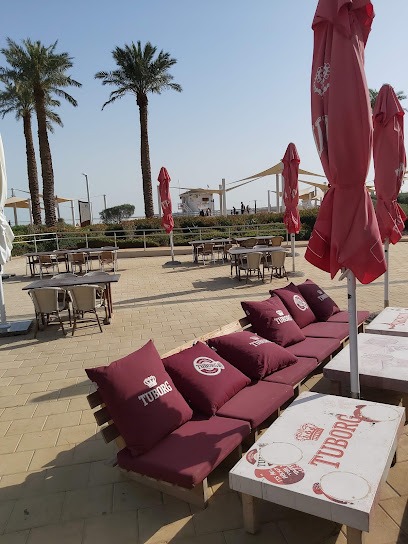
Rama's Kitchen
Discover Rama's Kitchen: where exquisite flavors meet breathtaking views in the heart of Nataf.
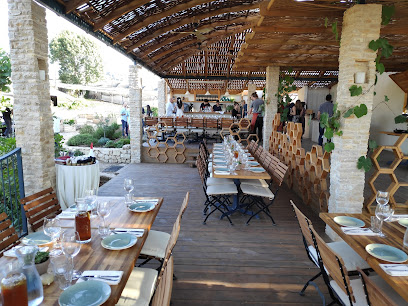
Ein Bokek Restaurant
Discover delightful culinary experiences at Ein Bokek Restaurant near the Dead Sea - where flavors meet breathtaking views.
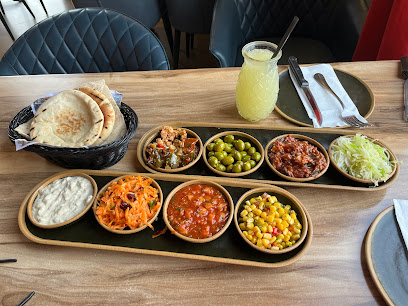
McDonald's
Savor classic fast food favorites at McDonald's by the Dead Sea – where comfort meets convenience amid stunning natural beauty.
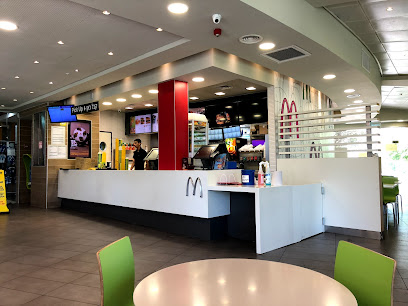
כינור בכיכר Kinor Bakikar
Experience the exquisite fusion of Jewish traditions and haute French cuisine at Kinor Bakikar in Jerusalem.
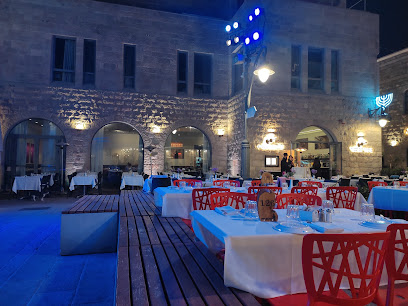
Essential bars & hidden hideouts
Masada National Park
Discover the ancient wonders of Masada National Park, a majestic historical site with breathtaking views and rich stories of resilience and adventure.
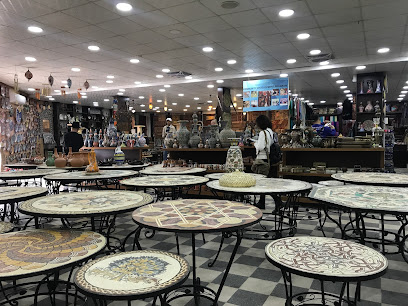
Muza
Discover Muza in Arad: A vibrant restaurant and pub offering a delightful mix of local flavors and a cozy atmosphere for every taste.
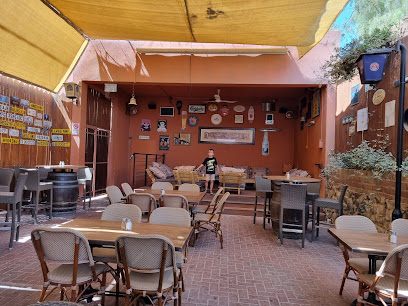
Taj Mahal
Discover authentic Middle Eastern flavors at Taj Mahal, where every meal is a celebration of culture and taste.
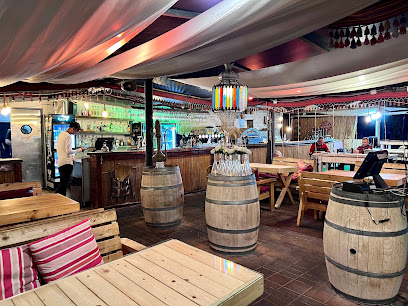
Mazkeka
Discover the heartbeat of Jerusalem at Mazkeka, where live music and delectable cuisine come together in a vibrant atmosphere.
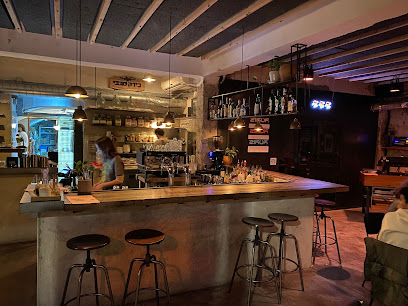
Glen Whisk(e)y bar
Experience the heart of Jerusalem's nightlife at Glen Whisk(e)y Bar, featuring an extensive selection of whiskies and a cozy atmosphere.
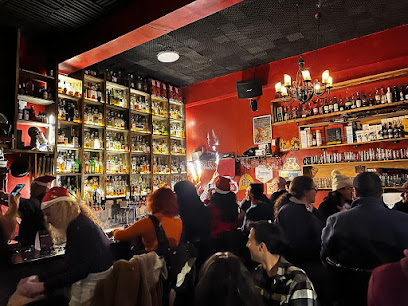
Hashchena (Bar) - השכנה
Discover the vibrant nightlife at Hashchena, a cocktail bar in Jerusalem, offering innovative drinks and a lively atmosphere perfect for socializing.
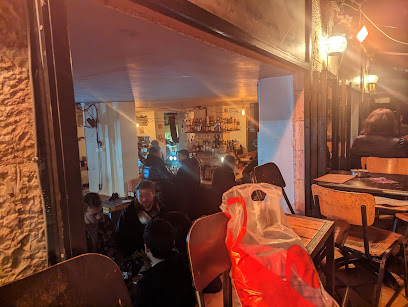
Wine Bar
Experience the vibrant wine culture of Jerusalem at Wine Bar, where exceptional wines and delicious cuisine come together in a charming atmosphere.
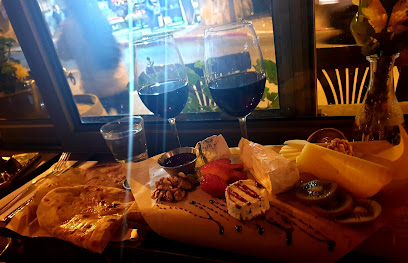
Lowest Bar in the World
Discover the Lowest Bar in the World, where stunning views and refreshing drinks meet at Kalia Beach, an unforgettable landmark destination.
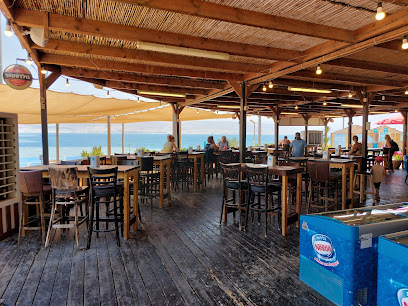
Rabbit Hole
Experience the unique charm of Rabbit Hole, Jerusalem's premier cocktail bar, where creativity meets taste in an inviting atmosphere.
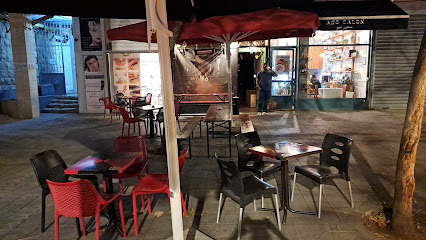
מבשלת בירה שיטה (פאב | מסעדה | ביר גארדן)
Indulge in craft brews and delectable dishes at מבשלת בירה שיטה, a premier brewpub in Arad, where flavor meets fun.
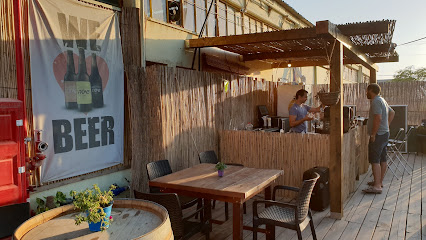
Baobar
Discover delightful dining at Baobar in Ein Gedi, where local flavors meet stunning desert views for an unforgettable experience.
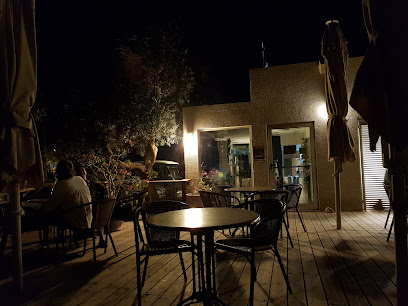
מצדה 31
Discover the lively nightlife at מצדה 31 in Be'er Sheva, where great drinks and a vibrant atmosphere await you.
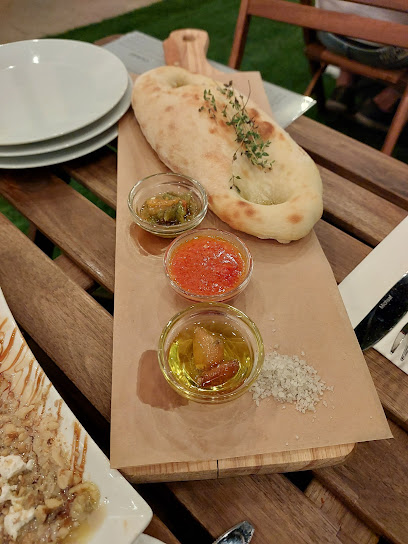
Masada Mt. Restaurant
Experience the flavors of Israel at Masada Mt. Restaurant, where history meets breathtaking views of the Dead Sea.
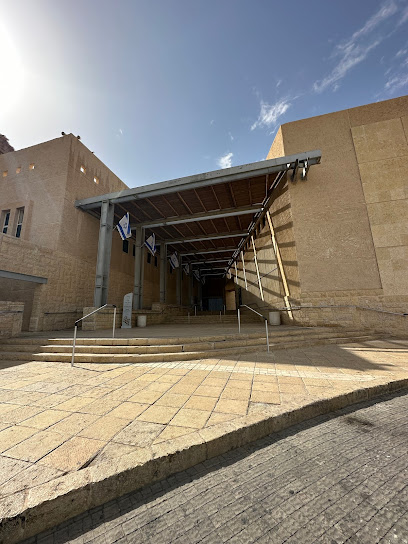
לולו בר
Discover the vibrant nightlife of Arad at Lulu Bar, where great drinks and a lively atmosphere await you.
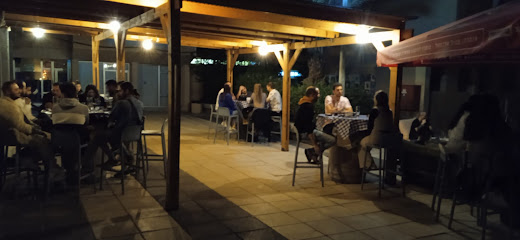
Local Phrases
-
- Helloשָׁלוֹם
[shalom] - Goodbyeלְהֵיתָרֵעַ
[lehitr'ea] - Yesכֵּן
[ken] - Noלֹא
[lo] - Please/You're welcomeבְּבַקָּשָה
[bevakasha] - Thank youתּוֹדָה רַבָּה
[todah rabah] - Excuse me/Sorryסְלִיחָה
[selicha] - How are you?אֵיך אַתָּה?
[ayekh atah] - Fine. And you?טוֹב. וָאַתָּה?
[tov. va'atah] - Do you speak English?הֲאַתָּה מְדַבֵּר אַנְגְלִית?
[ha'atah medaber anglit] - I don't understandאֲנִי לֹא מֵבִין
[ani lo mevin]
- Helloשָׁלוֹם
-
- I'd like to see the menu, pleaseאֲנִי רוֹצֶה לִרְאוֹת אֶת הַתַפְרִיט, בְּבַקָּשָה
[ani rotse lirot et hataprit, bevakasha] - I don't eat meatאֲנִי לֹא אוֹכֵל בָּשָׂר
[ani lo ochel basar] - Cheers!לְחַיִּים
[lechayim] - I would like to pay, pleaseאֲנִי רוֹצֶה לְשַלֵם, בְּבַקָּשָה
[ani rotse leshalem, bevakasha]
- I'd like to see the menu, pleaseאֲנִי רוֹצֶה לִרְאוֹת אֶת הַתַפְרִיט, בְּבַקָּשָה
-
- Help!עֶזרָה!
[ezra] - Go away!לְךָ לְךָ!
[lecha lecha] - Call the Police!קְרָא לַמִּשְׁטָרָה!
[kra lamishtara] - Call a doctor!קְרָא לַרוֹפֵא!
[kra larofe] - I'm lostאֲנִי אָבֵד
[ani oved] - I'm illאֲנִי חוֹלֶה
[ani holeh]
- Help!עֶזרָה!
-
- I'd like to buy...אֲנִי רוֹצֶה לִקְנוֹת...
[ani rotse liknot] - I'm just lookingאֲנִי רַק מְסַתֵכֵל
[ani rak masta'kel] - How much is it?כַּמָה זֶה עוֹלֶה?
[kama ze oleh] - That's too expensiveזֶה יָקָר מְאוֹד
[ze yakar meod] - Can you lower the price?אֶתָּה יָכוֹל לְהוֹרִיד אֶת הַמְחִיר?
[atah yakhol lehorid et hamechir]
- I'd like to buy...אֲנִי רוֹצֶה לִקְנוֹת...
-
- What time is it?כַּמָה הַשָּׁעָה?
[kama hashaa] - It's one o'clockהַשָּׁעָה הִיא אֶחָת
[hashaa hi echat] - Half past (10)חֲצִי (עֶשֶׂר)
[chatzi (eser)] - Morningבֹּקֶר
[boker] - Afternoonצָהֳרַיִם
[tzohorayim] - Eveningעֶרֶב
[erev] - Yesterdayאֶתְמוֹל
[etmol] - Todayהַיוֹם
[hayom] - Tomorrowמָחָר
[machar] - 1אֶחָד
[echad] - 2שְׁתַיִם
[shtayim] - 3שָׁלשָׁה
[shaloshah] - 4אַרְבָּעָה
[arbaah] - 5חֲמִשָּׁה
[chamishah] - 6שִׁשָּׁה
[shishah] - 7שִׁבְעָה
[shivah] - 8שְׁמוֹנָה
[shmonah] - 9תִּשְׁעָה
[tishah] - 10עֶשֶׂר
[eser]
- What time is it?כַּמָה הַשָּׁעָה?
-
- Where's a/the...?אֵיפֹה יֵשׁ...?
[eyfoh yesh] - What's the address?מַה הַכְתוֹבָת?
[mah hak'tovat] - Can you show me (on the map)?אַתָּה יָכוֹל לְהַרְאוֹת לִי (עַל הַמַפָּה)?
[atah yakhol leharot li (al hamapa)] - When's the next (bus)?מָתַי הַאוֹטוֹבוּס הַבָּא?
[matay ha'otobus haba] - A ticket (to ....)כַּרְטִיס (ל...)
[kartis (le...)]
- Where's a/the...?אֵיפֹה יֵשׁ...?
History of Masada
-
Located on a rugged plateau overlooking the Dead Sea, Masada was first fortified by the Hasmonean king Alexander Jannaeus in the first century BCE. This early settlement laid the groundwork for what would become one of the most iconic fortresses in Jewish history.
-
In 37-31 BCE, King Herod the Great significantly expanded and fortified Masada. He transformed it into a luxurious refuge, complete with palaces, storerooms, cisterns, and bathhouses. Herod's construction included a northern palace that cascaded down the cliffs, showcasing his architectural ingenuity and desire for opulence.
-
The most dramatic chapter in Masada’s history occurred during the First Jewish-Roman War (66-73 CE). Following the fall of Jerusalem in 70 CE, a group of Jewish zealots, known as the Sicarii, took refuge in Masada. In 73 CE, the Roman Tenth Legion, led by General Flavius Silva, laid siege to the fortress. Despite the formidable defenses, the Romans constructed a massive ramp to breach the walls.
-
Facing inevitable defeat, the Jewish defenders of Masada chose to die by their own hands rather than be captured by the Romans. According to the historian Flavius Josephus, the Zealots killed each other in a mass suicide pact, leaving only two women and five children alive to tell the tale. This act of defiance has become a symbol of Jewish heroism and resistance.
-
Excavations at Masada in the 1960s, led by Israeli archaeologist Yigael Yadin, unearthed significant artifacts that provide insight into daily life at the fortress. These discoveries include Herod's palaces, the Roman siege works, and remnants of the Zealots' occupation, such as pottery, coins, and food remains. The site also revealed a synagogue, one of the oldest known, and evidence of ritual baths.
-
Today, Masada is a UNESCO World Heritage Site and a major tourist attraction in Israel. Visitors can explore the well-preserved ruins, hike the Snake Path, or take a cable car to the summit. The site offers a profound glimpse into the past and serves as a poignant reminder of the resilience and determination of those who once lived there.
Masada Essentials
-
Masada is located in the Judean Desert in Israel, near the Dead Sea. The closest major city is Jerusalem, approximately 100 kilometers away. From Jerusalem, you can drive to Masada, which takes about 1.5 hours. Alternatively, you can take a bus from the Jerusalem Central Bus Station to the Masada Junction, followed by a short shuttle ride to the site. If you're coming from Tel Aviv, the drive takes around 2 hours. There are also organized tours that offer transportation from major cities.
-
Once at Masada, the site is best explored on foot. There are two main ways to reach the fortress: the Snake Path, a steep hike that takes about 45 minutes to 1 hour, and the cable car, which offers a quick and scenic ride to the top. The cable car operates regularly throughout the day. For those with mobility issues, the cable car is the recommended option. If you plan to explore nearby attractions, renting a car can be convenient.
-
The official currency in Israel is the Israeli New Shekel (ILS). Credit cards are widely accepted at the Masada visitor center, including for purchasing tickets and in the souvenir shops. However, it's advisable to carry some cash for smaller purchases or in case you visit nearby local markets. ATMs are available in major cities but not at the Masada site itself.
-
Masada is generally a safe destination for tourists. However, it is important to stay hydrated and wear appropriate sun protection, as the area can get extremely hot, especially in the summer months. There are no specific high-crime areas targeting tourists near Masada, but standard precautions such as keeping an eye on your belongings and not leaving valuables unattended are always advisable.
-
In case of an emergency, dial 100 for police assistance or 101 for medical emergencies. The nearest medical facility is in the town of Arad, about 20 kilometers away. It's recommended to have travel insurance that covers medical emergencies. There is a first aid station at the Masada visitor center for minor health issues. Always carry a charged mobile phone and a bottle of water in case of an emergency.
-
Fashion: Do wear comfortable and breathable clothing suitable for hiking if you plan to walk up the Snake Path. Avoid wearing flip-flops or sandals without straps. Religion: Do respect the historical and cultural significance of Masada. Keep noise levels low, especially in the more solemn areas. Public Transport: Do use public buses and shuttles to reach Masada. They are reliable and relatively inexpensive. Greetings: Do greet people with a simple 'Shalom' (hello). Eating & Drinking: Do drink plenty of water due to the heat. Don’t litter; always use designated trash bins.
-
To experience Masada like a local, try to visit early in the morning to avoid the midday heat and crowds. Take the time to read the informational signs and visit the museum at the visitor center to fully appreciate the site's history. Consider combining your trip with a visit to the nearby Dead Sea, where you can float in the mineral-rich waters and enjoy a mud bath. Pack a picnic and enjoy it at one of the shaded areas near the visitor center.
Nearby Cities to Masada
-
Things To Do in Ein Gedi
-
Things To Do in Dead Sea
-
Things To Do in Kerak
-
Things To Do in Bethlehem
-
Things To Do in Jerusalem
-
Things To Do in Beersheba
-
Things To Do in Tafilah
-
Things To Do in Madaba
-
Things To Do in Modi'in
-
Things To Do in Dana
-
Things To Do in Ashdod
-
Things To Do in Salt
-
Things To Do in Amman
-
Things To Do in Holon
-
Things To Do in Ramat Gan










